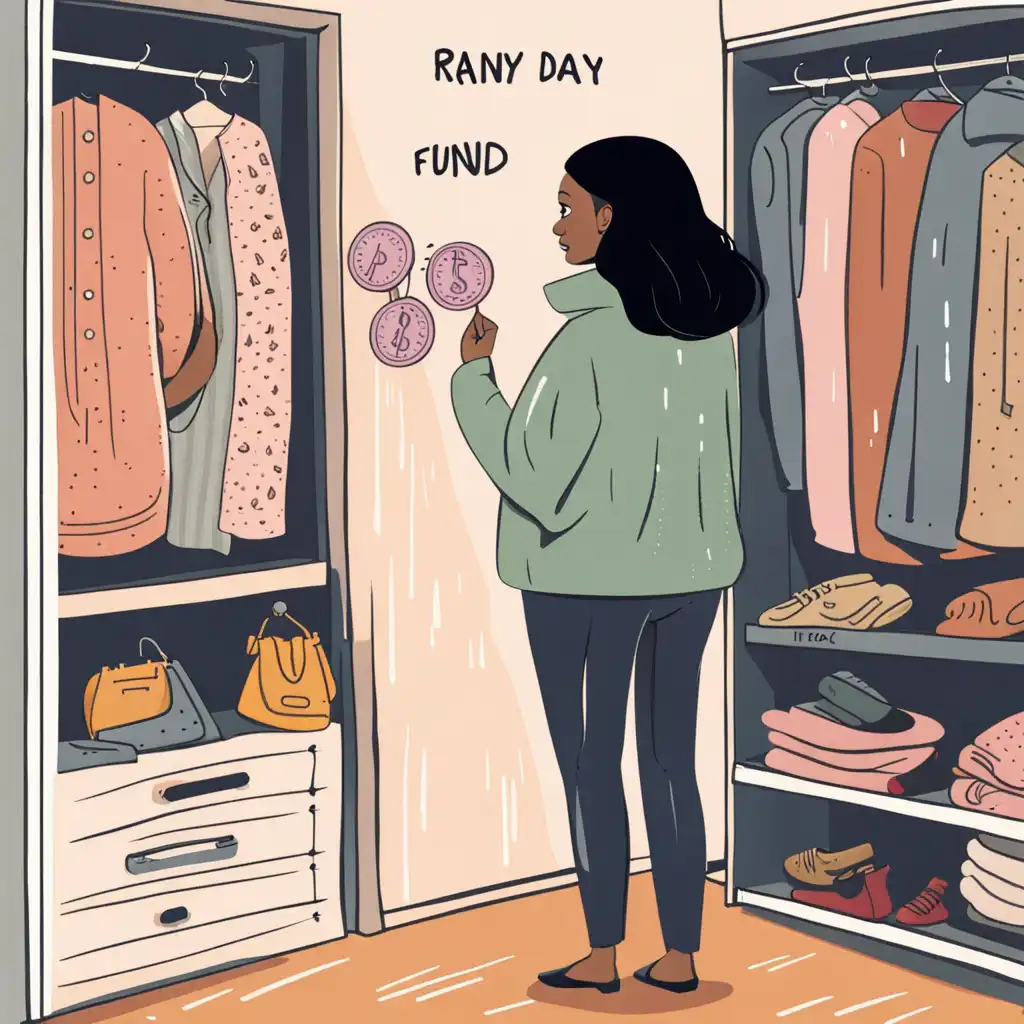
Save, keep, etc. something for a rainy day
Idiom Origin
Understand it comes from a time when bad weather could interrupt income, hence saving for difficult times.

Farmers would often save grain for a rainy day, as they couldn't work in their fields during storms.
Not Literal
The phrase is not about actual weather, but about being prepared for any challenging situation.

Even though it's sunny, he still likes to save for a rainy day.
Common Usage
Most often used for saving money, but can also apply to other items or situations of eventual need.

I'm keeping these candles for a rainy day in case the power goes out.
WordUp Chrome Extension
As you browse the web instantly look up words you don’t know.
Get Chrome Extension



